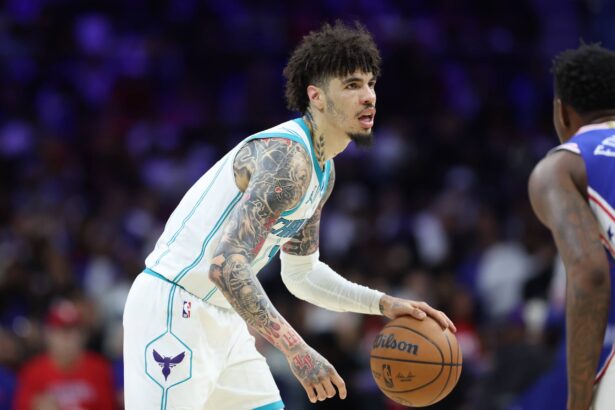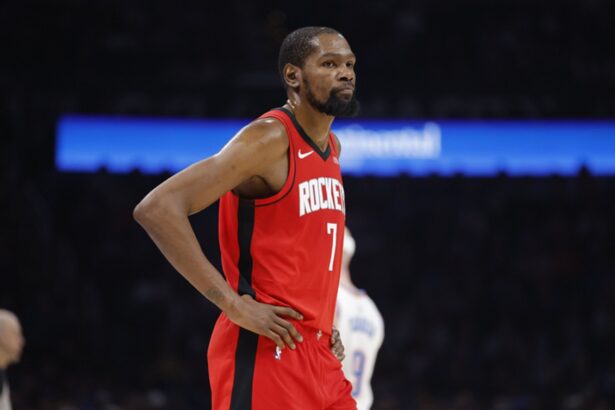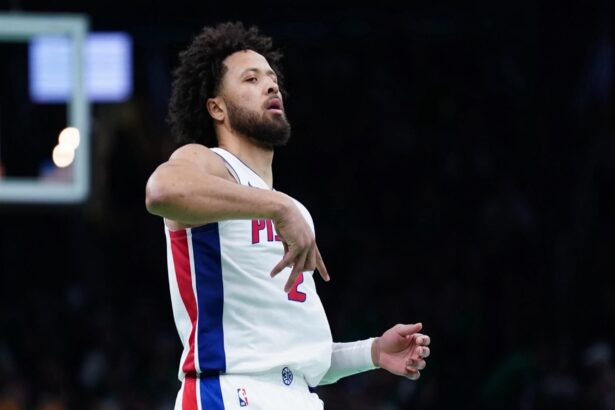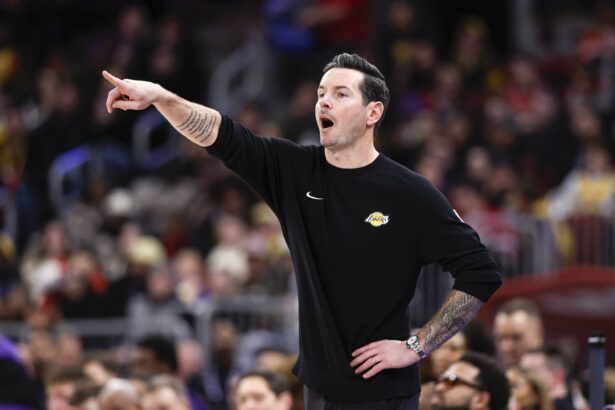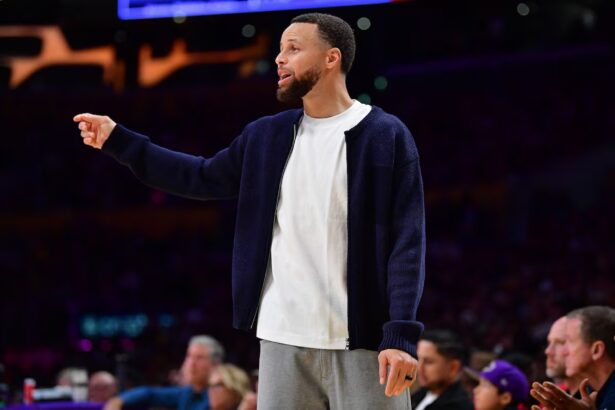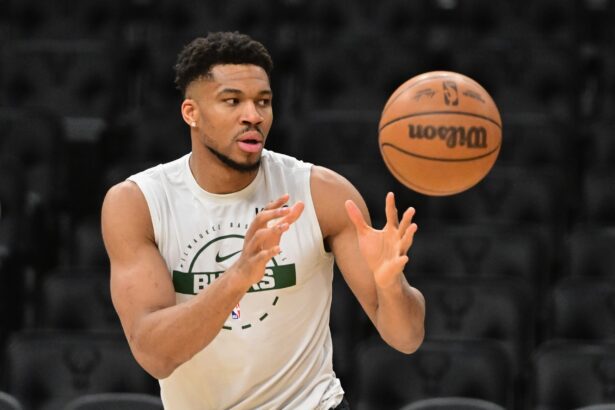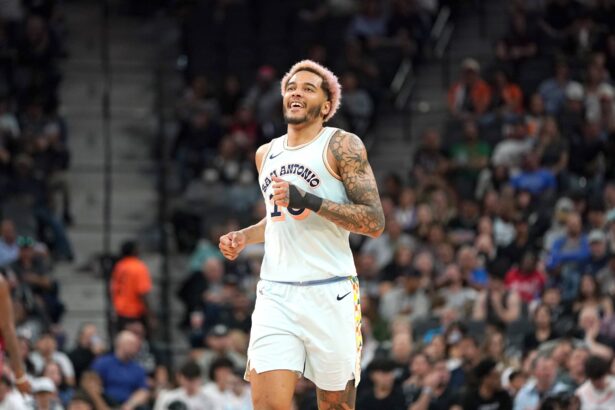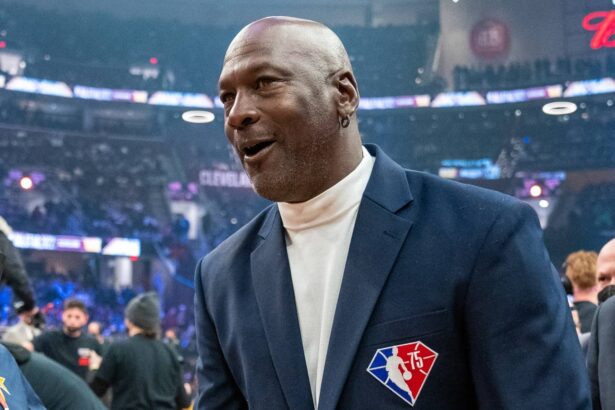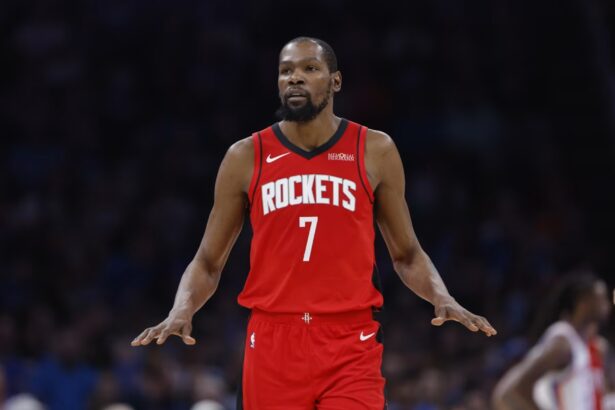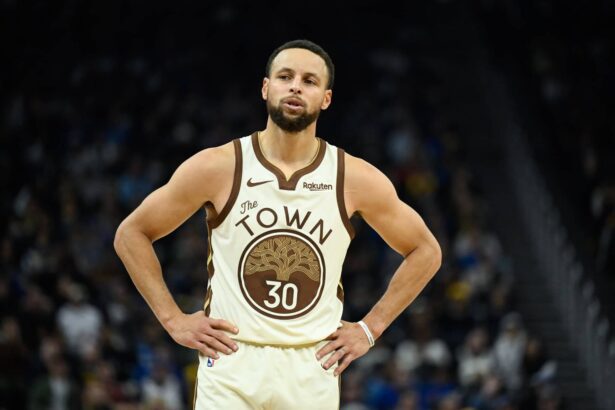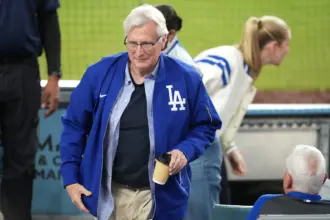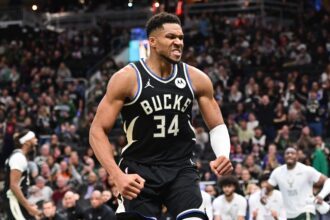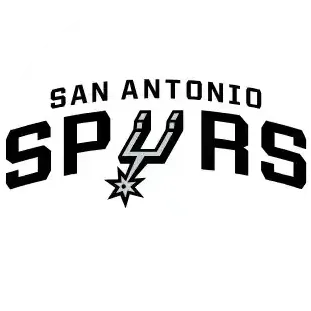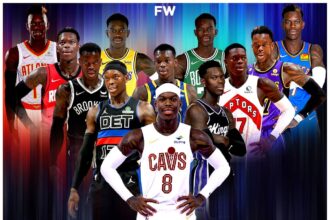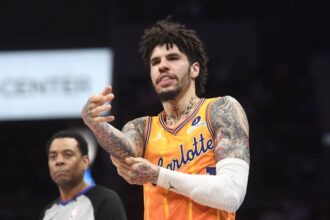How often do we, as NBA fans, hear about the comparisons between different eras throughout the history of the NBA? The answer is more than we’d like to admit, but the fact is that the conversation is alive and well. One thing you always hear about when comparing eras is that the defense in today’s game is nothing like that of 20, 30, and 40 years ago. The league was more physical, and referees let the players get away with everything that wasn’t blatant physical assault. What would happen if we took the best players from the 90s and 2000s and pit them against each other in a 7-game series?
- 90’ Magic Johnson vs. 01’ Allen Iverson
- 96’ Michael Jordan vs. 08’ Kobe Bryant
- 93’ Charles Barkley vs. 09’ LeBron James
- 99’ Karl Malone vs. 02’ Tim Duncan
- 94’ Hakeem Olajuwon vs. 00’ Shaquille O’Neal
- 1990s MVPs Advantages
- 2000s MVPS Advantages
- Who Would Win This Matchup In A 7-Game Series?
- Next
- LeBron James’ Superteam vs. Shaquille O’Neal’s Superteam: Who Would Win A 7-Game Series?
- Michael Jordan’s All-Time Starting Five vs. LeBron James’ All-Time Lakers Starting Five: Who Would Win A 7-Game Series?
- Michael Jordan’s MVP Points Per Season: The GOAT Won 5 MVP Awards And Came Second 4 Times
- Michael Jordan’s Perfect Record Against NBA Rivals: 310 Players Never Won Against The GOAT
- Kobe Bryant’s MVP Points Per Season: The Black Mamba Deserved At Least 3 MVP Awards
The 90s and 2000s were statistically 2 of the best decades there have ever been on the defensive side of the ball. We will be taking 5 of the best MVP seasons from each of those decades for an epic 7-game matchup. Each player will have won the MVP award and will be evaluated based on their production and skill from that particular season. The 20-year span of the 90s and 2000s gave us some of the best individual seasons ever produced by the greatest players in the game’s history. Here is how each lineup will shape out:
1990s MVPs: 90’ Magic Johnson, 96’ Michael Jordan, 93’ Barkley, 99’s Karl Malone, 94’ Hakeem Olajuwon
2000s MVPs: 01’ Allen Iverson, 08’ Kobe Bryant, 09’ LeBron James, 02’ Tim Duncan, 00’ Shaquille O’Neal
Now let us take a look matchup by matchup and see which one of these MVP-filled teams would win in a 7-game series.
90’ Magic Johnson vs. 01’ Allen Iverson
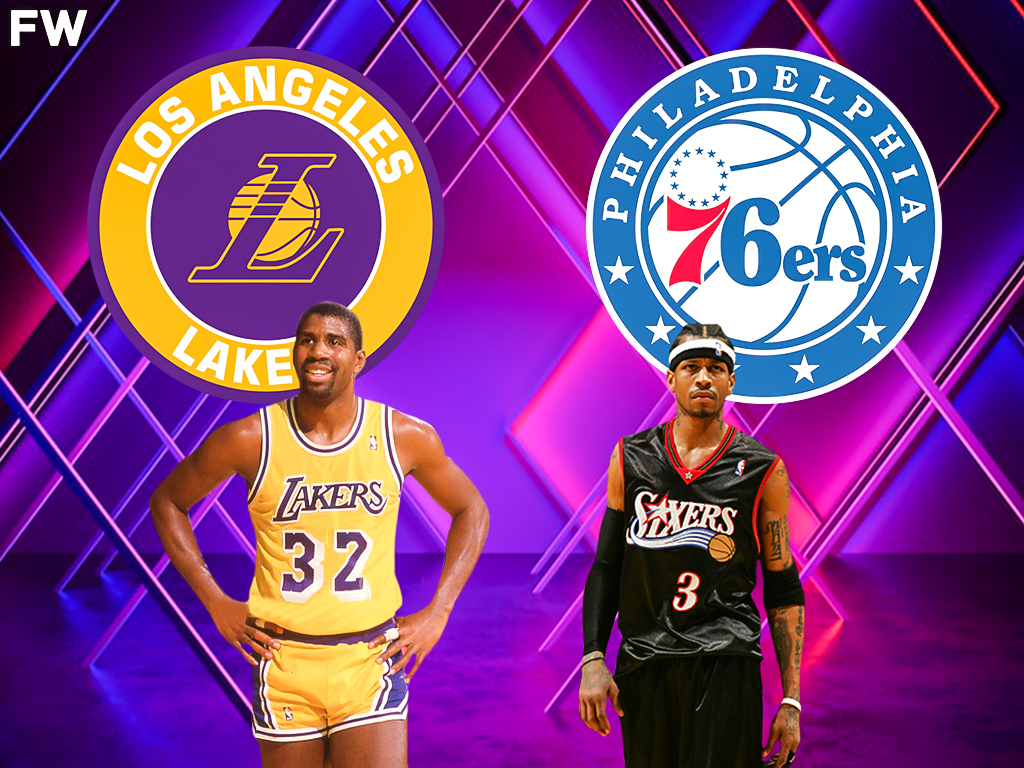
The 1990 version of Magic Johnson, who took home the MVP award, is the perfect way to start off this 90s squad. With all of the firepower at the other 4 positions, Magic can focus on what he did best, which was pushing the pace and making plays for his teammates. The glaring advantage for Magic over Iverson will be the drastic size difference. This allows Magic to not only operate well in the open court and from the perimeter, but he will also dominate from the post like he was prone to do.
Allen Iverson will have his work cut out for him on both ends of the floor against a much larger Magic Johnson. Iverson is going to get his by any means necessary based on the numbers he put up in 2001. Iverson won the scoring title in 2001, averaging 31.1 PPG on 25.5 shot attempts, so the shots are going to fly regardless of how contested they may be. On the defensive end, Iverson will be much more effective off of the ball but could be rendered useless trying to take Magic on the perimeter.
96’ Michael Jordan vs. 08’ Kobe Bryant
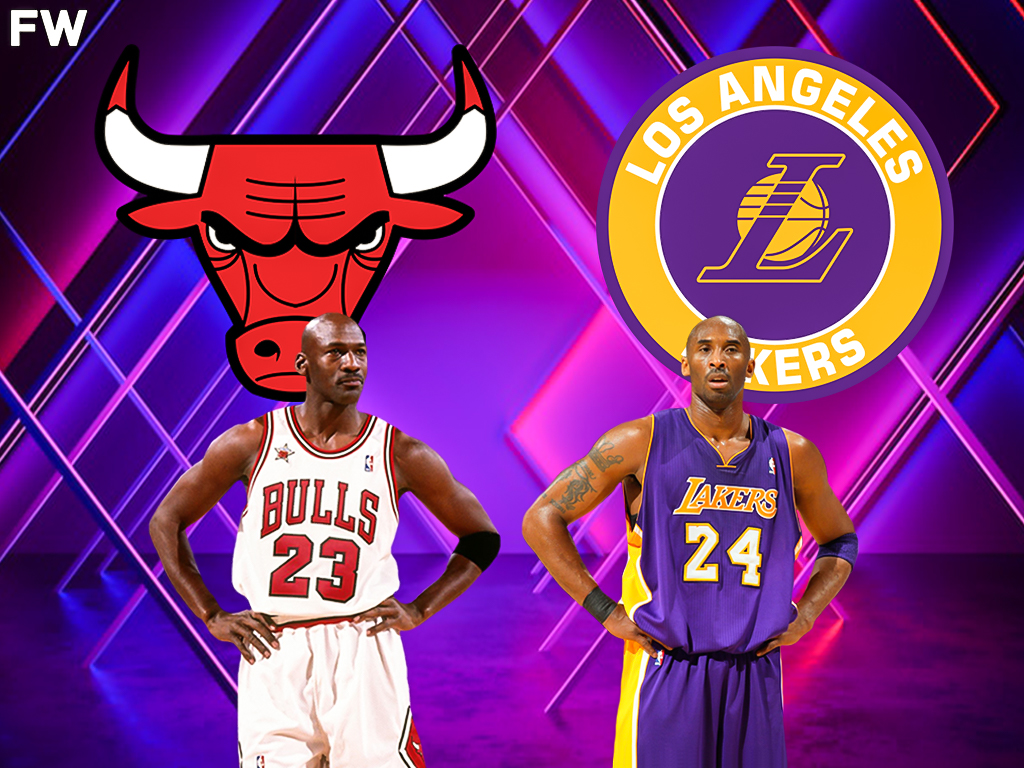
The matchup of Michael Jordan vs. Kobe Bryant is one NBA fans wish they could have seen in real-time. The 1996 version of Jordan was a man possessed, just coming back from nearly 2 years away from the game and desperate to win once more. He was still a 30.0 PPG scorer and relentless defender, both on and off the ball. They say Kobe was a slightly milder version of the GOAT, but even this matchup is out of reach for him. Jordan will punish Bryant from the mid-range while making him look lost in the open court with the pace being pushed by Magic.
That is not to say that 2008 Kobe Bryant would not be able to hold his own for a time against Jordan. In 2008, Bryant was an outstanding two-way player himself and a decent shooter from beyond the arc. That is where Kobe will thrive against Jordan and will be getting his shot going from the outside. Bryant was no slouch on defense himself, so he will make Jordan work for his buckets. This matchup will be the one to watch as the series unfolds, and each superstar tries to exploit the other’s weaknesses.
93’ Charles Barkley vs. 09’ LeBron James
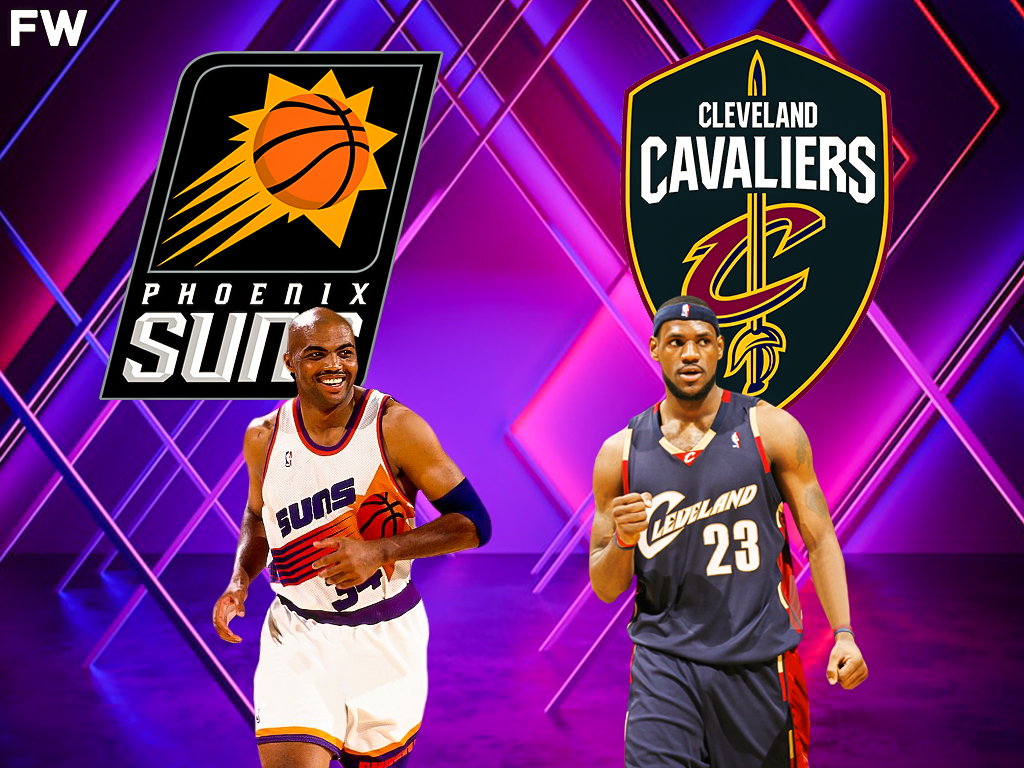
In 1993, Barkley was truly a do-it-all power forward for the Phoenix Suns. He was 5th in scoring and 6th in rebounds, and his 5.5 APG ranked first among all power forwards and centers combined. Barkley ran the floor extremely well and became one of the more dangerous offensive weapons in basketball during the season. Barkley will have his hands full keeping up with the speed and size of LeBron, however, and will have to make up for it with his physicality.
In 2009, LeBron James was on a different planet as far as his all-around game. James mastered the art of the point-forward moniker and controlled games at will with his play on both sides of the ball. Whenever there was a stop to be made on defense or a play to be made on offense, it would be James’ number that was called time and time again. This matchup will shape up to be a monster advantage for the 2000s MVP squad, with James as their go-to guy to run the offense.
99’ Karl Malone vs. 02’ Tim Duncan
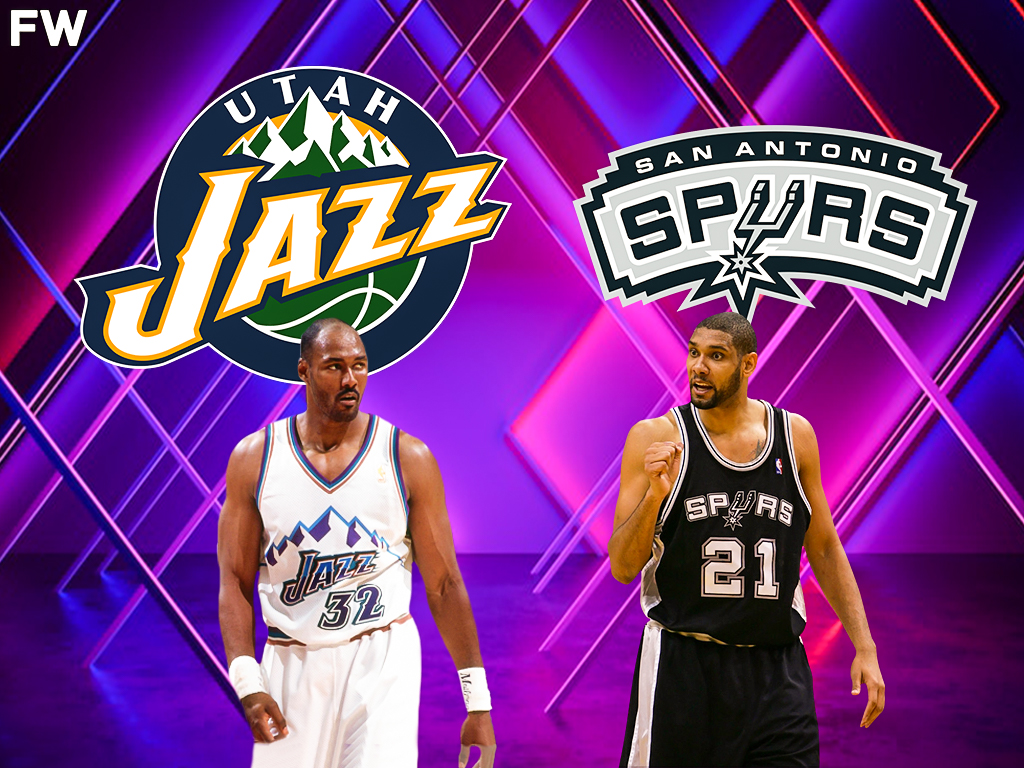
The matchup between the 1999 MVP and the 1999 Finals MVP is one we would have loved to have seen play out in front of our eyes. We do have a small sample size of a matchup between these 2, with Duncan holding a slight advantage in that department, even when he was a younger player vs. Malone’s MVP seasons. The best chance Malone has against Duncan is to run a pick-and-roll offense with Magic. Malone will hope to use his momentum and speed to get around Duncan, if need be, off the dribble as well.
Duncan will want to bring this game to the post. On offense, Duncan will have a distinct advantage around the basket over Malone. Duncan will have to stave off Malone’s attempts to be more physical with him, but as we saw through his career, Duncan has no issues getting physical with his opponents. Duncan’s success will be predicated on if he can beat Malone down the floor and establish a position on the low block. If Duncan is the recipient of decent entry passes from Iverson or James, look for him to win this matchup and maybe even the series for the 2000s.
94’ Hakeem Olajuwon vs. 00’ Shaquille O’Neal
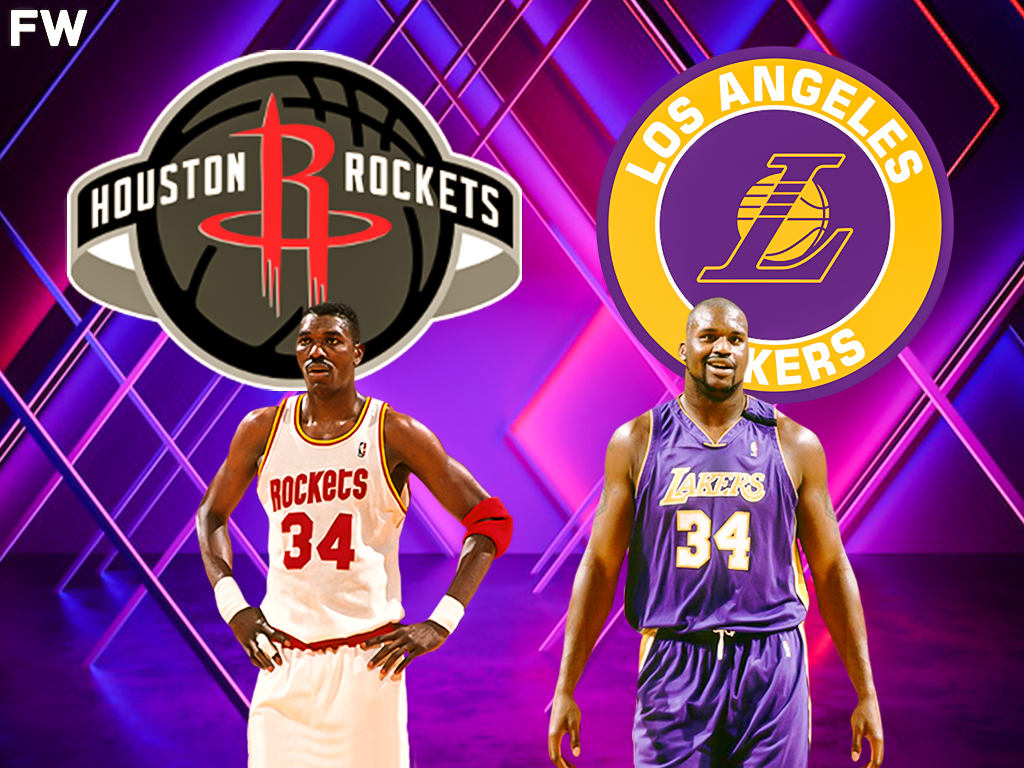
Two of the best seasons by a center in the last 30 years square off in the final matchup between these 2 teams. In 1994, Hakeem Olajuwon was unstoppable as the NBA’s best player on both sides of the ball. Hakeem will have to use his footwork and agility in the post when going up against Shaq. The strength and power advantage lands with O’Neal, so Olajuwon will rely on his skill and hopefully be able to pull Shaq from the paint with his ability to hit short jumpers.
O’Neal and Olajuwon squared off in the 1995 NBA Finals, but that was far from the MVP version of Shaq we saw in 2000. This version of Shaq relied on brute strength and power to win scoring titles and 3 consecutive NBA championships. In 2000, nothing could stop Shaq from getting anything he wanted in the paint and simply controlled games from 3 feet from the basket. The matchup between Olajuwon and O’Neal is key to the outcome of this series and could be the deciding factor between these MVP matchups.
1990s MVPs Advantages
Each one of these MVP teams is filled with immense talent and players who will do whatever it takes to win. There are several advantages that each team holds over the other and will be their keys to victory. For the 90s team, their first glaring advantage lies in their backcourt. Magic Johnson and Michael Jordan are the 2 best in NBA history at 2 of the most important parts of the game. Johnson’s playmaking and Jordan’s scoring will be far too much for the 2000s team to handle.
The second advantage that the 1990s MVPs holds is the pace of play they will play at. The 90s MVPs have 5 guys who like to run the floor and are all considered threats on the open floor. This bodes well for the 90s when we take into consideration 2002 Duncan and 2000 Shaq running the floor trying to keep up with Malone and Olajuwon. With Magic Johnson and Michael Jordan setting the tone, the 1990s may just be able to run the 2000s right out of town.
2000s MVPS Advantages
Just as the 90s team has over them, there are 2 large advantages for the 2000s MVPs as well. The first of which has to be the frontcourt we have built. Tim Duncan and Shaquille O’Neal are 2 of the best ever at their respective positions, and these are the versions of them at their very best. The two will prove to pose serious issues to the 90s MVPs, not only for the way that they will feed off each other either. The inside-out game they can run with the likes of Iverson, Kobe, and LeBron will be tough for any defensive personnel to keep up with.
The next advantage that the 2000s team has over the 90s is their playmaking. Yes, the 90s have Jordan and Magic to cover that for them, and that is what makes the matchup close. However, with LeBron, Kobe, Iverson, and the 2 superstars in the paint, the playmaking is just too much for the 90s team to keep up with. There are 4 players who can easily create for themselves and others simultaneously, while their 5th, Shaq, will continuously own the paint with decent entry passes and assists. The team chemistry and ball movement will be key to any victory the 2000s hopes to obtain.
Who Would Win This Matchup In A 7-Game Series?
In Game 1, the 2000s kicked off the series by taking advantage of their interior matchups. James ran the offense through Tim Duncan and Shaq Perfectly. Doing this allowed the 2000s team to completely throw off the 90s team rhythm and never allowed them to change the pace of the game. O’Neal finished the game with 36 points, and 11 rebounds as the 2000s take Game 1, 100-88. Jordan added 40 points for the 90s in the loss.
Game 2 is when Michael Jordan began to really make his mark on the series. He and Magic did nothing but run for 48 minutes, refusing to let the 90s go down 2-0. Kobe Bryant battled with Jordan, but in the end, it wasn’t enough to hold the 90s back from victory. Jordan scored 39 points and grabbed 4 steals, while Karl Malone had a 28-point game working the pick-and-roll with Magic. The 90s take Game 2 by a score of 99-87.
In Game 3, LeBron James and Allen Iverson stole the show in the first half. The 2 were making plays on both ends of the floor to hype up the crowd and build a comfortable lead for the 2000s. The 90s fought back with runs led by Michael Jordan and Hakeem Olajuwon. Magic dished out 18 assists, and Jordan dropped 43 points, but the 2000s pulled away with 69 total points and 8 steals combined from James and Iverson. Team 2000s wins Game 3, 112-102.
Game 4 would be where Karl Malone and Charles Barkley would make their mark on the series. Malone played a huge role defensively as he slowed down Duncan for the first time in the series. Barkley was able to get off a huge night offensively with 30 points and 14 rebounds. LeBron had been helping to double-team Jordan, leaving Barkley with the room to go to work. Shaq had a big night for the 2000s with 33 points, 15 rebounds, and 3 blocks, but it wasn’t enough to get the job done. The 90s avoid going down 3-1 and win Game 4, 109-99.
In pivotal Game 5 is when we started to see Michael Jordan shift the series into the 90s favor. With no fear and no regard for human life, Jordan attacked the rim on offense, drawing fouls and finishing through contact regularly. James provided the same aggression on offense, but it would be Kobe who battled with MJ on this night. Bryant and Jordan battled for nearly the entire 4th quarter. In the end, it would be Jordan’s 54 points that would carry the 90s to a big series-shifting win.
In Game 6, someone needed to step up for the 2000s in order for them to avoid elimination. It would be a tale of 2 halves as Hakeem Olajuwon and Jordan gave the 90s an early lead in the first half. In the 2nd half, Duncan and Shaq rose to the occasion once more for the 2000s. Shaq and Duncan combined for game-changing buckets and stifling defense to bring the 2000s back from the dead. James and Bryant would close the game out for the 2000s, setting up a Game 7 for the history books.
Game 7 would be a game of stamina and grit to see who the superior class of MVPs is. In the first half, there was nothing that the 90s could do about the trio of Kobe, LeBron, and Shaq. The 3 stars could not be stopped on the offensive side of the ball while Duncan handled the interior defense to perfection. In the 2nd half, the 90s went back to what won them their first 3 games. This was the trio of Jordan, Olajuwon, and Magic feeding off of each other. In the final 2 minutes, Jordan and Olajuwon combined for 8 critical points to tie the game. After a turnover by James on an errant drive to the basket, Barkley came up with the loose ball. With 15 seconds left, Magic fed the ball up to Jordan as he was streaking down the floor. Jordan handed the ball off to Hakeem in the high post, faked one way, stopped, and received the pass back from Olajuwon. Jordan rose up to seal the deal for the 90s on a clutch, game-winning jumper.
We sincerely appreciate and respect you as a reader of our site. It would help us a lot if you follow us on Google News because of the latest update.
Thanks for following us. We really appreciate your support.
1990s MVPs vs. 2000s MVPs: 4-3
Finals MVP: Michael Jordan






